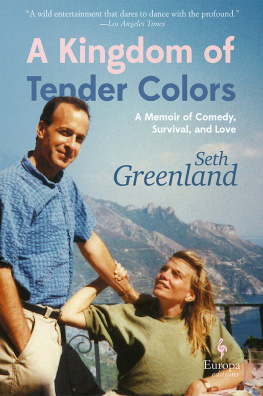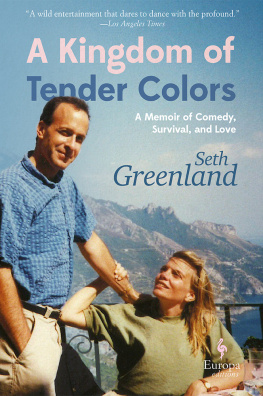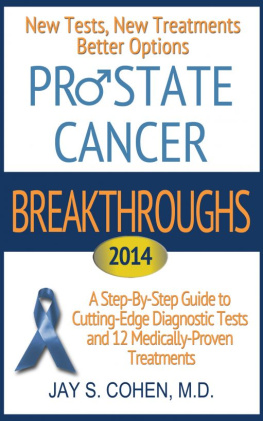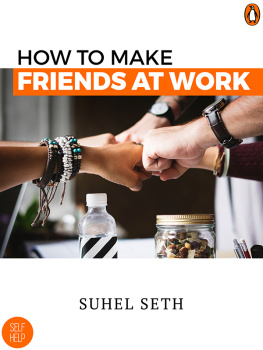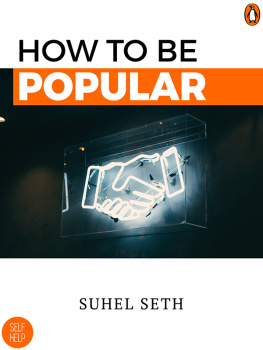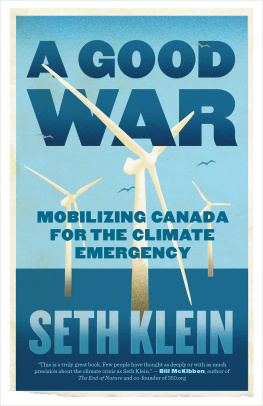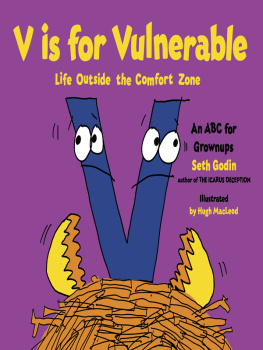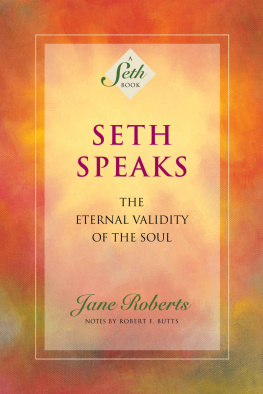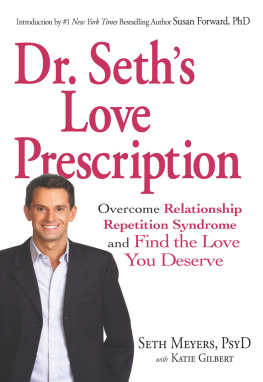ALSO BY
S ETH G REENLAND
The Hazards of Good Fortune
The Angry Buddhist
Shining City
The Bones
I Regret Everything
AKINGDOMOF
TENDERCOLORS
My own nature, as I am not ashamed to confess frankly,
is unheroic.
S TEFAN Z WEIG
P ROLOGUE
I hold my fathers copy of Mein Kampf in my hand and wonder if it should be saved, donated, or burned in the backyard. Will the day arrive when I attempt to hack my way through Hitlers turgid opus? Or do I want to observe the look on the face of the clerk at the local donation center when she sees that noxious title? And what was Leo Greenland, husband, father, grandfather, successful advertising executive and generous supporter of multiple charitiessome of them Jewishdoing with a paperback edition of Mein Kampf anyway? Bequeath, retain or incinerate: Our choices.
We are breaking down Dads library. His heart gave out six months earlier at ninety-one, and my wife Susan and I have flown east to meet my brother Drew and close down the house. My mother died twenty years earlier and with the eternal absence of both parents the scrim that separates me from death has vanished. Dad was born in the Bronx and my mother in Brooklyn. They ascended high above their social origins and with a well-developed sense of herring-flecked drollery would occasionally refer to themselves as Bix and Brooke.
The bedrooms were easy to pack up; the living room and the den done on autopilot. It would have been easy enough to turn the kitchen into an emotional minefield. There are the beautifully painted dishes my mother shipped from Spain, the ones on which she prepared her signature dish of scallops with feta cheese and tomatoes. The carving knife Dad had wielded so many Thanksgivings or the stained wood tray I had made in elementary school might easily have sent me tumbling down a Proustian rabbit hole, unable to emerge for hours. These objects resonate, but their emotional power pales compared to that exerted by the books.
In a house of readers, what more than books allows access to the inner lives of its occupants? When a person you love has recently died, there is often an urge to keep them close in some tangible way. With dusty fingers we work our way through libraries of the dead and read their lives, written in volumes about other subjects.
Born to uneducated immigrant parents, Dad was an autodidact (a word he never would have used) whose lifelong search for knowledge and meaning led him on a journey that began with books about marketing and took him from there to the Greek philosophers, particularly Aristotle and Plato. In between, he accumulated a veritable Waldorf salad of titles. There were over a thousand. You cant keep them all.
Bequeath, retain or incinerate. We vow to exorcise sentiment, sort rigorously, keep it moving.
The library is on the second floor of the house, overlooking a frozen lake. No other houses are visible, only ice and bare trees against white sky. When packing our dead fathers books on a silent January day, gray winter light flooding in, thoughts of eternity wrestle with the anodyne task at hand. An old bestseller easily drops into the donation pile, but then I am brought up short by a high school yearbook from 1938 and open it to the picture of Dad as an eighteen-year old, his entire life about to unfold, nothing more than a glint in his brown eyes. He looks like my brothernot my brother Drew but a brother of mine in some other dimension, one where we are the same age as our parents and our grandparents and our children and the normal distinctions no longer abide. He is me and I am him. The idea of people you love living on within you no longer seems like such thin gruel.
I decide to keep a leather-bound edition of Treasure Island, a book I havent read since the fourth grade, perhaps because I might read it again, but if Im being honest, more because it helps me remember that I was once a child and lived with parents who gave me books like that and The Catcher in the Rye and Huckleberry Finn and to whom I owe gratitude that deepens like the notes of a descending scale on a double bass.
There are histories and biographies, art books, novels, books about golf, classics from antiquity, the entire oeuvre of Ogden Nash, leather-bound volumes both antiquarian and recent, all of them revelatory in one way or another. There are books that my brother and I had given as gifts and we open them to read the inscriptions: I know if a book has the word Jews or Israel in the title, you will like it. I hope Im right this time. Love, Seth. In the Alec Guinness memoir A Blessing In Disguise, I had written To Mom, A blessing undisguised. And, of course, I had to stop and stare out the window while I collected myself and thought about all the childhood hours my mother read to me, a book open on her lap as I lay in bed listening.
Turning back to the shelves I pick up a volume of Remembrance of Things Pastthe Proustian rabbit hole itself!inscribed in 1938 by my now ninety-year-old Aunt Claire to my paternal grandfather, a four-times married, pathological narcissist from Poland who cut a swathe through the ladies of the Bronx. It is difficult to imagine him having had time for Proust, but it makes me think of my aunt at sixteen, poignantly hoping that her perpetual disappointment of a mostly-absent father might somehow be interested in this book. And then there is this depth charge: an edition of Now We Are Six by A.A. Milne, copyright 1927, and inscribed as follows: To my belove [sic] son Leo. Father. When my grandfather abandoned his family in 1928, leaving my grandmother to face the Depression alone with three children, it left my father with an unseen scar. If Dad could be said to have had a primal wound, this was it. To touch the book, a frayed, orange hardback with faded gold lettering, is to hear once again the painful stories he told me about his father, the serial remarriages, the emotional abuse, the years-long estrangement.
Although my parents were not bibliophiles in the traditional sense, every house they occupied had a floor to ceiling wall of books. The first time I ever saw a swastika it glowered at me from Dads copy of William L. Shirers The Rise and Fall of the Third Reich, shelved near his edition of Mein Kampf, cheek-by-jowl with Deborah Lipstadts The War on the Jews. When interested in a subject, he examined it from all angles. I had helped myself to the Shirer years earlier. As for the worthy Lipstadt, it lands in the donation pile.
There is a collection of classics that includes Lucretius, Epictetus and Marcus Aurelius. I have no idea if he read these particular editions, but their contents were manifest in his behavior. He was both an Epicurean and a man who tried to see with the unsurpassed clarity of the Stoics. The art books are a testament to his uxorious nature. My mother was the art lover and they were purchased for her: eclectic volumes of Wyeth, Grandma Moses, El Greco, Monet, Miro, Picasso, Van Gogh, Hopper, Christo, Magritte, Matisse, Garry Winogrand, and Irving Penn. As we sort, all the museum visits come flooding back, my mothers endless quest to make us interested in things besides baseball cards or digging holes in the backyard. Several volumes go into the box I will ship to California.
Three of my Sunday school textbooks have been saved, books I had not laid eyes on in over forty years. One of them contains the following self-penned inscription: In case of fire, burn this first. I cant imagine either of my parents ever saw it. Their silence in such an event would have been unimaginable. The strange feeling of wanting to excoriate the wisenheimer who scrawled such offensive words overcame me, to remind the little shit of the book burnings that lit Germany in the 1930s, and then, in the kind of psychological jiujitsu that arrives with age, the dissonance of having come to embody the parental position is duly noted. Would I have freaked out if I had discovered my son had done the same?

